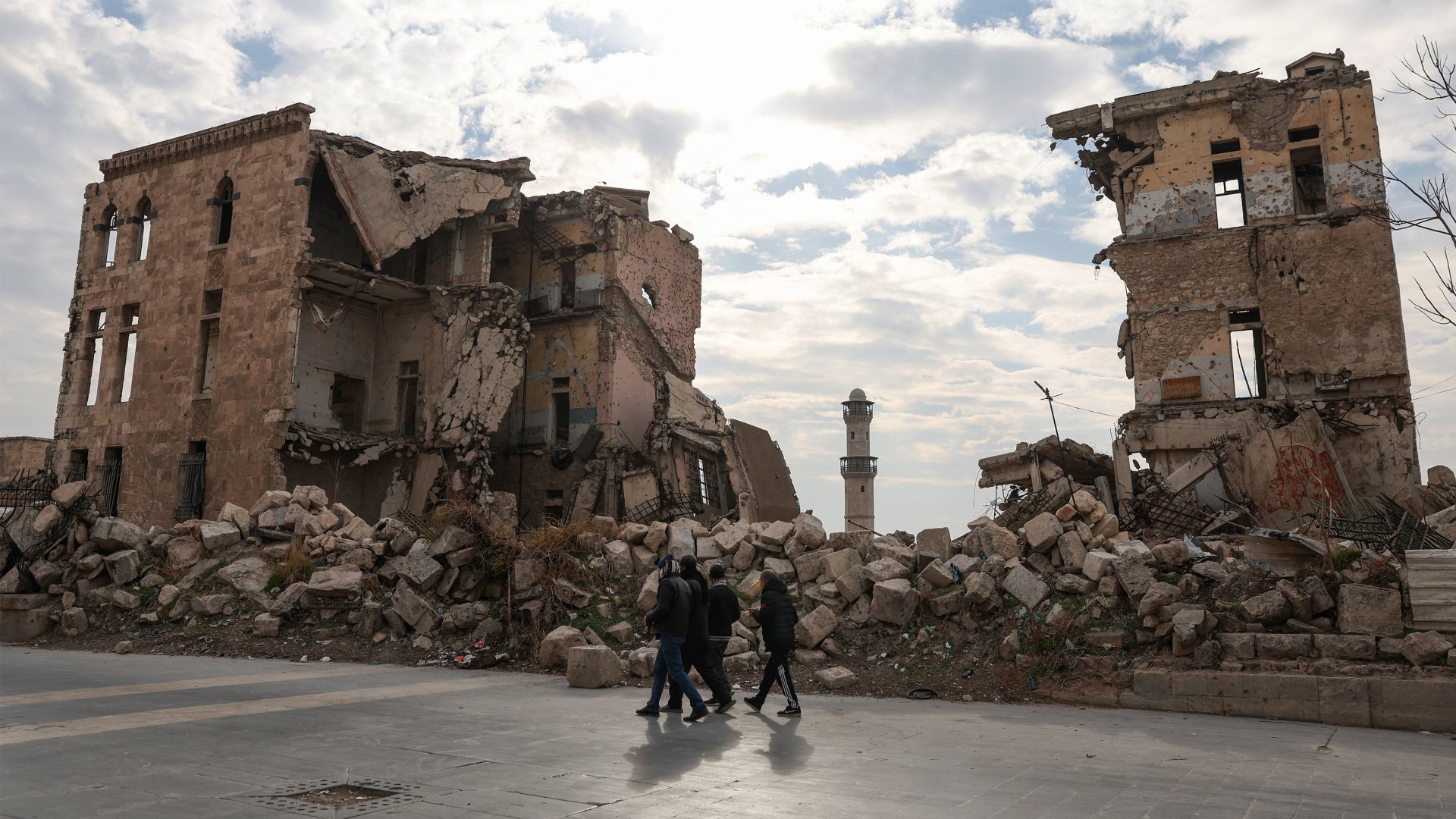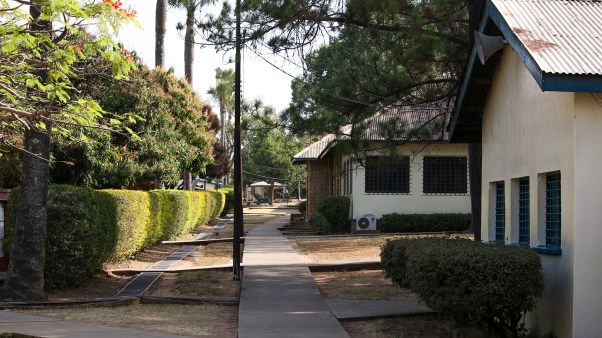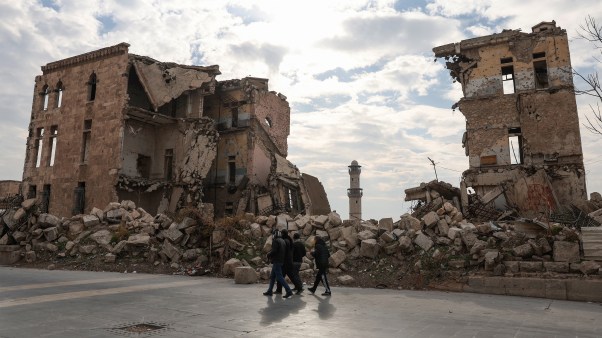A coalition of rebel fighters promises to respect Syria’s religious minorities.
After Assad: Jihad or Liberty?

On Sunday, the government of Syrian president Bashar al-Assad fell to a loose coalition of militant factions headed by Abu Mohammed al-Golani, once affiliated with al-Qaeda. Assad fled to Russia, and Syria’s prime minister welcomed the rebels. Golani promised that “Syria is for everyone” in a message directed to religious minorities.
Maybe—but rhetoric and reality may differ.
Joseph Kassab, general secretary of the Presbyterian Synod of Syria and Lebanon, told Christianity Today that some Christian leaders had defended the Assad regime as a bulwark of stability against jihadist rebels backed by regional governments.
Given rebel leader Golani’s past, Christians have reason for concern. Golani was affiliated with al-Qaeda in 2003 and has a $10 million bounty on his head as a US and United Nations designated terrorist. Though in 2013 he refused to integrate his militia into the caliphate-seeking Islamic State (ISIS), he said Syria must be ruled according to sharia law.
In 2016, Golani cut ties with al-Qaeda and the following year rebranded his group as Hayat Tahrir al-Sham, which in Arabic translates as “the organization for the liberation of Syria.” While Russia and Iran helped Assad stay in power and the US fought ISIS from its bases in the Kurdish northeast, affiliated rebel groups controlled only Idlib near the Syrian border with Turkey.
Golani violently consolidated power and then traded his military persona for a business suit. He told an American journalist in 2021 that his movement, if successful, posed no threat to the West. Golani has offered assurances to Christians in Syria, and yesterday churches were open. Many had decreased attendance.
Kassab said Syrian Christians focused on being productive citizens and promoting education, seeking to influence their nation slowly through ethical living and the demonstration of biblical values. Some joined the regime, he said, and benefited like all the others who supported it. “It is not the best way to live,” Kassab said, “but it was the best available.”
In Damascus, rebel leader Golani’s first public act was to enter the courtyard of the eighth-century Umayyad Mosque and declare his triumph a “victory for the Islamic nation.” In one neighborhood of winding alleys, The New York Times described Bab Sharqi as home to many Assad-supporting Christians, including how “Victor Dawli, 59, stood in his apartment’s entryway, a cigarette in hand. As a truck carrying Syrian rebels passed, Mr. Dawli waved. One fighter, clutching his rifle and hunched over in the bed of the truck, nodded in response.”
Times reporters Christina Goldbaum and Hwaida Saad noted “a sense of unease in the neighborhood, as people here walked a tightrope. Some have kept their heads down and stayed inside their homes. Others like Mr. Dawli say they have secretly supported the rebels from the start of their offensive. … When one neighbor passed by, Mr. Dawli shouted to him: ‘Good morning, congratulations!’ The man gave him a blank stare, then hurried down a nearby alleyway.”
Harout Selimian, president of the Armenian Protestant Churches in Syria, is uneasy. He told Christianity Today, “Any reduction in violence is a welcome step forward, but there is a lack of clarity over the opposition agenda.”
Yes, Syria’s 14-year-old civil war, which killed half a million people and displaced half of Syria’s population of 23 million, seems over. But who will emerge triumphant?
Presbyterian leader Kassab fears a Libya scenario, in which rival rebel factions fail in efforts to “share the cake” of their success and reignite an internal conflict. In 2011, Libya, like Syria, saw peaceful protests morph into a military struggle. But while Assad survived, Libyans killed Muammar Gaddafi and then turned on each other in civil war. Libya has been geographically divided in half ever since, with regional powers like Turkey and Egypt backing their favored parties.











